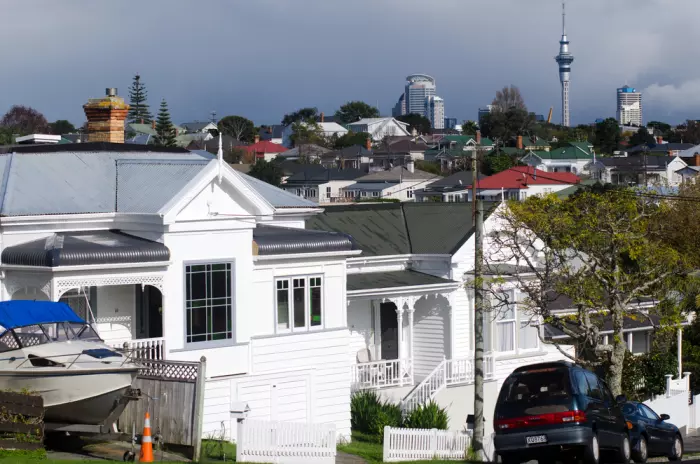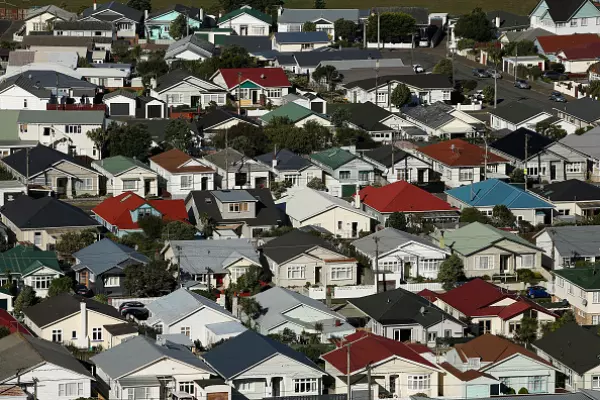A net 92 percent of real estate agents are expecting house prices to rise further, even after their record 11.7 percent four-month surge between September and December.
That's according to economist Tony Alexander's latest survey of 336 agents.
"The results of our first survey of real estate agents for 2021 tell us that, for the very short term, the extremely high momentum in house prices may well continue," Alexander said.
"For this measure, responses are universally strong around the country with the weakest result being a net 86 percent of agents in Auckland reporting rising prices. Some regions have 100 percent responses."
The survey had 114 Auckland-based agents responding.
Hot on the heels of the survey results came the latest sales data from Barfoot & Thompson, Auckland's largest real estate agency with about 40 percent of the market. They showed January was the most active for that month in 17 years.
Although average and median prices in January were slightly down from December, they were up 12.2 percent and 10.2 percent respectively from January last year and sales were up 60.2 percent on January 2020.
Taking a holiday
"The average and median prices invariably dip between January and December, given the absence of many high-end buyers from the market over the holiday season," said Peter Thompson, the agency's managing director.
Nevertheless, the agency sold 72 homes for more than $2 million in the latest month.
Alexander said analysis of the data since 1992 suggests that periods of extreme price growth don't last very long.
But more agents are reporting fear of missing out, or FOMO, is the driving factor in the market — a net 90 percent said so this month compared with 88 percent in both November and December.
A net 64 percent are reporting increasing numbers of people attending open homes, a record for that measure, and a net 48 percent are reporting greater attendance at auctions, also a record.
Other measures are suggesting a potential slowdown; agents are reporting waning interest from first-home buyers and investors.
A net 46 percent said they were seeing more first-home buyers, down from 50 percent in December and 64 percent in November, and a net 31 percent are seeing more investors, down from 45 percent in December and 59 percent in November.
More LVR restrictions
"This is a greater easing off of market presence than for first-home buyers and that is likely to partly be because of the extra tightening of minimum deposit requirements for investors by one bank," Alexander said.
All the major banks reimposed loan-to-valuation restrictions last year after the Reserve Bank started consulting on reintroducing formal restrictions.
"But a key factor may well be reduced hopes of finding a bargain," Alexander said. Only a gross 18 percent of agents reported investors were seeking bargains in the latest survey, well down on the 60 percent in June.
He noted that 23 percent of property sales last year went to first-home buyers, according to CoreLogic.
"It is only natural to expect that, over time, as prices have risen strongly … an increasing number will simply find themselves unable to keep looking because growth in prices will have exceeded growth in their deposits."
The agent survey contrasts with a survey of mortgage advisors Alexander recently undertook which showed greater numbers of inquiries from both first-home buyers and investors.
"This divergence in results from two surveys may reflect the fact that mortgage advisors are likely to be very busy with potential clients seeking information on the changing landscape regarding LVRs," he said.
Chasing lower rates
"Many people are also likely to be enquiring about access to the new 2.29 percent one-year fixed mortgage rates now being offered by most lenders."
Another sign the market may be slowing is that agents are reporting fewer requests for property appraisals. A net 22 percent said they were receiving more requests, down from 26 percent in December and 33 percent in November.
December new listings had been 23 percent ahead of the previous December so the reduced appraisal requests could be a sign such growth won't continue.
"One key development in residential real estate markets when prices rise strongly for a period of time is that potential vendors hold off making moves toward placing their property on the market because of hopes for further price gains," Alexander said.
"When price expectations ease off, capitulation by these vendors can lead to a lift in listings."
Thompson said the only reason his agency was able to sell so many houses in January was the high number of new listings — at 1,378 they were their highest in eight years, he said.
Barfoot & Thompson's total inventory of homes available for sale had dwindled to just 2,938 at the end of 2020 because sales had been so brisk through the last quarter of 2020. That had risen to 3,131 at the end of January, down 11.5 percent on January 2020.














